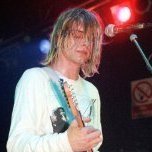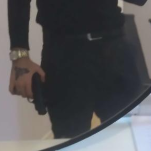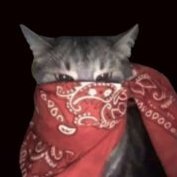Search the Community
Showing results for tags 'georgian mafia'.
-
This thread will follow the development of Roman Asanidze.
- 12 replies
-
- 4
-

-

-
- georgian mafia
- mob
-
(and 1 more)
Tagged with:
-
What is Georgian Mafia? World-wide organized crime group known as the Georgian Mafia operates throughout the Middle East, Europe, United States, South America, Canada, Asia, Australia, and all other post-soviet nations. As slave soldiers were made to work for Georgia's lords in the late 18th century, some of the slaves began killing their own lords and ranch owners and making their way to the mountains and forests. In the early 19th century, killers and robbers who were made to work on the lords' farms and fled into the forests formed the Mountain Connection, and people gave them the name "Tyeshi Gavardnilebi." Many of these people congregated in the mountains, where they organized into bands of highly skilled thieves who would raid villages and steal only from the wealthy to aid the poor villages and farmers. These so-called "Yachagebi" would help lone farmers work in their farms, aiding all the innocent Georgian citizens, but their only enemy was the Kingdom they were fighting against in the late 19th century. There, we meet the man known as "Papa," which means grandfather in Georgian. Papa was in charge of all Siberian prisons and Siberia; he is a Georgian prisoner with connections throughout the whole of Russia and Europe; he was the man in charge of all kinds of crimes from across the Russia and Europe. Many criminal group leaders were captured by the assisting King Russia's soldiers and were sent to Siberia for life sentences. The man known as "Papa" operated in Siberia with other mountain group leaders, and according to the most recent information, the gold was used in Turkey, France, Georgia, and Russia. He was responsible for the largest Siberian prison break and the theft of an undetermined amount of gold from Siberian mines. Koba Jugashvili was better known as Joseph Stalin in the middle of the 20th century. Koba Jugashvili was an outlaw and a close friend of the mountain groups, which is where the Soviet Union began, and the Georgian "Papa" along with the other Georgians who were operating from the mountains funded and supported Joseph Stalin. Recently, Joseph Stalin creates a project to control the prisons where he uses old friends from the mountains arrested around the Russian prisons, including Vladimirsky Central and the rest, Joseph Stalin plants a project where old friends from the mountains are in charge of the prison Because of Joseph Stalin's cordial relationships with the heads of Georgian crime organizations, prison "watchers" were primarily Georgians. For those who were transported to the other prisons hundreds of miles away, he only needed to take his shirt off and no questions were asked. Despite the Georgians' control over the prisons, they thought of something novel and distinctive to recognize each other in the prisons all over the world. They called each other "thieves" or "thieves in law." As Joseph Stalin's idea goes like an epidemic drug across the Soviet Union prisons, Georgians started to take the positions and make their legs harder during World War II, taking over all the prisons, businesses and connections of Soviet Union oligarchs, investing more money back in Georgia and supporting para-military groups in the 80s, as a new face shows up after Joseph Stalin's death, also Georgian Edward Shevardnadze who was brought to Georgia in order to support Jaba Ioseliani's paramilitary group and governmental activities, he gathers up the other thieves and arrests Ioseliani after the Apkhazian war, Edward Shevardnadze has brought down the Berlin wall, made a straight gateway to the Europe for Georgian thieves as Georgian thieves put him in charge of Georgia from the prisons. Because prison was like a second home to them and they couldn't be detained again for what they were doing, it was the greatest spot for Georgian thieves to operate from. So that's what I'm trying to communicate here. I wanted to say that everyone in the world knew the term "Russian Mafia" and referred to everyone else as a member of the organization. Nobody gave Georgians a second thought, and that was always the plan. Georgia, which joined the UN and Europe, presents itself as innocent to the outside world, has zero corruption and no crime, and we have everyone in the world in control of everything you believed the Russian Mafia to be in charge of. Yes! That's why FBI director finally declares, "There is no Russian Mafia, it was all Georgian." That's us, Georgians, who ended the Berlin War and are in charge of the entire global syndicate that you believed to be Russian. Because of this, the Italian prime minister claims that "The Italian mafia we knew has been taken over by Georgian Mafia." The front page of every newspaper in Europe features a Georgian. Perhaps I made it plain that there is no Russian mafia because Georgians have been in charge of every major syndicate working in Russia for centuries and will continue to do so till the end of time. The presence of organized crime groups from various countries has been a persistent challenge for law enforcement agencies around the world. Among these criminal organizations, the Georgian Mafia has gained attention for its activities in the United States. This topic explores the influence, operations, and impact of the Georgian Mafia within the United States, shedding light on their criminal activities, structure, and law enforcement efforts to combat them. The Georgian Mafia's operations in the United States present a significant challenge to law enforcement agencies tasked with combating transnational organized crime. While efforts are being made to disrupt their activities and dismantle their networks, the fluid nature of these criminal organizations requires ongoing vigilance and international cooperation to effectively combat their influence. By understanding the structure, operations, and impact of the Georgian Mafia, law enforcement and society at large can work towards mitigating their criminal activities and protecting the well-being of communities affected by their presence. Origins in the former Soviet Union: The Georgian Mafia emerged during the dissolution of the Soviet Union in the 1990s, when criminal elements took advantage of the chaotic transition. With the advent of globalization and easier travel, Georgian criminal groups began to establish a presence in the United States, particularly in major cities with sizable Georgian immigrant communities. The Georgian Mafia typically operates in a hierarchical structure, consisting of different criminal cells or "thieves-in-law" who have significant influence and control over illicit activities. Criminal Activities: The Georgian Mafia engages in a wide range of illegal activities, including but not limited to drug trafficking, extortion, money laundering, credit card fraud, prostitution, and arms smuggling. The Georgian Mafia often collaborates with other international criminal organizations, such as Russian, Ukrainian, and Armenian syndicates, to carry out illegal activities. Other Major U.S. Cities: The Georgian Mafia has also established a presence in other cities with significant Georgian communities, such as Los Santos. The Georgian Indictments in Los Santos: The transnational nature of the Georgian Mafia presents unique challenges to law enforcement agencies, including language barriers, limited resources, and difficulties in gathering evidence across jurisdictions. U.S. law enforcement agencies work closely with international counterparts to investigate and disrupt the activities of the Georgian Mafia, sharing intelligence and coordinating efforts to dismantle criminal networks. Governments have implemented legislation to strengthen law enforcement's ability to target organized crime by imposing stricter penalties, enhancing surveillance capabilities, and providing additional resources for investigations. Social Impact: The presence of the Georgian Mafia in the United States has resulted in increased violence, drug addiction, and the exploitation of vulnerable communities. Additionally, the infiltration of legitimate businesses poses a threat to the economy and undermines fair competition. Governments and law enforcement agencies continuously refine their strategies to prosecute and convict members of the Georgian Mafia, utilizing tactics such as undercover operations, asset seizures, and witness protection programs. Formation of Botkoveli Crime Group. Conflicts in the post-Soviet states of the Caucasus have intensified after the collapse of the Soviet Union. Since 1991 to 1994, an unrecognized Nagorno-Karabakh Republic has been at war with Armenia and Azerbaijan. The newly established Republic of Georgia was involved in the Abkhazia and South Ossetia ethnic conflict from 1991 until 1993. Numerous criminal organizations have started trafficking large quantities of guns and drugs during these conflicts. Georgia was split among many criminal organizations. One of the most well-known was Jaba Ioseliani's Mkhedrioni, a paramilitary organization that operated in Georgia from 1989 until 1995. Mkhedrioni was the provider of arms to the criminal groups in Tbilisi (capital of Georgia). Calling themselves brotherhoods, 90s of Georgia was heaven for them. Even though there were ups and downs, Thieves by Law still had a huge popularity and respect among Georgian population. 21st Century. As the last century came to an end, various political groups gained popularity. People were assembling and entering the streets. Mikheil Saakashvili, the head of the United National Movement, took office as president in 2003 and reorganized Georgia following the Rose Revolution. They discovered a brand-new, least corrupt police force, known as "Patrol Police." Many Thieves by Law were deported quickly after police seized total control of the nation. Mikheil Saakashvili, who was feared by many, drove Thieves by Law and their factions out of Tbilisi and the rest of Georgia. Many people began to view him as the leader of a nation who was also a legal criminal. Although most Mafia members were deported to Europe and Russia, some of them discovered a method to reach America. Georgian mafia in Europe, Today. One of the biggest, most potent, and influential criminal organizations in Europe is the Georgian Mafia. It is regarded as the most brutal and well-organized criminal organization. They are highly hierarchical and structured. According to estimates, the Georgian Mafia makes EUR 250,000,000 annually in Germany alone. The similar loss has been reported in all other European nations. It is well known in Italy that Georgians enter apartments undetected using specialized hand-made instruments. One of the Georgian hideouts included jewelry valued at EUR 2,000,000, according to an Italian operation. Georgians typically invest their money in hotels and real estate, as opposed to Russian biker gangs, who invest their money in vehicle repair shops, cleaning services, private security services, and prostitution establishments. Massive arrest in Europe. The majority of Georgians migrated back to Russia or Turkey after the widespread arrests of Georgian Mafia members in Europe because doing business in these two nations is the simplest. They are still both corrupt. Even if that is the true, a number of Georgian Mafia members have already been spotted in Tbilisi and Kutaisi as a result of the new government. Some mafiosis are currently relocating to the United States, and if they have a chance there, there will be a new Georgian mafia revolt. A new wave of immigrants from Georgia. Officials from Europe claim: "La Cosa Nostra? Our mob? They have no chance of ever being anything like the Georgian Mafia. There isn't a criminal organization quite like Georgian. SOKHUMI, GEORGIA, 1993. In Sokhumi, the Georgian National Guard, Mkhedrioni, the Borotebis Brotherhood, and a few other criminal organizations were engaged in combat with Russian militants and separatists. Military soldiers from Georgia were evacuated together with criminal and civilian volunteers after Sokhumi entered the Russian sphere of influence. As they were returning to Tbilisi, the capital of Georgia, one of the volunteers, Irakli Botkoveli, and his fellow members of the brotherhood were able to steal a Russian military vehicle, a Ural-375. Botkoveli's group. After emigrating to Europe, Russia, Turkey, and other nations, Irakli Botkoveli's group continues to play a significant role in the trade of Caucasian weapons in Syria, Turkey, Russia, Bulgaria, Romania, France, Italy, Morocco, Argentina, Costa Rica, Cuba, Dubai, Egypt, and nearly all of Europe, Eastern Europe, and Asia. The majority of Irakli Botkoveli's group members are permanently barred from returning to Georgia and are therefore forced to conduct business with other legal faces and figures there instead. At the moment, Botkoveli and his group are conducting business in west United States of America.
-
HARD BLOW AGAINST RUSSIAN-SPEAKING MAFIA IN EUROPE CAUSES INCREASED PRESENCE IN U.S. Published: 01 September 2021 WRITTEN BY JOHNATHAN KLEINBERG On the 18th of June 2013, INTERPOL supported the arrest of 18 suspects, 13 of them ‘thieves in law’ (vor v zakone), from the Georgian Kutaisi clan. The Kutaisi clan, with an estimated 50 vory v zakone, is one of the most powerful Georgian organized crime groups. This is one of the most significant blows against clans controlled by this high-ranking elite of the world of Russian-speaking organized crime. This is the first time in Europe that such a considerable number (13) of thieves in law have been apprehended simultaneously. The arrest of the Kutaisi leader in Hungary is believed to represent a devastating blow to Russian-speaking organized criminals. As well as the leader, the rest of the clan’s hierarchy were arrested. The operation is ongoing and further arrests are expected. Key figures within the Kutaisi clan, Georgian Internal Affairs. During January 2013, the assassination of a Tbilisi clan leader located in Moscow created a power vacuum which lead to several violent attempts in which many members strengthened their positions. This has resulted in an increased presence of thieves in law in the United States. North American countries have become a shelter for them to avoid investigation and prosecution in their home jurisdictions. The ease of movement and excellent communications in the United States are an attractive environment for Eurasian mobsters to deploy and monitor their organized crime groups, re-invest criminal proceeds and hide from possible retaliation from opposing clans in the ongoing power struggle. Drive-by shooting of Tbilisi-clan enforcer, Lasha Saurishvili in Moscow. Under the guise of major leadership figures within the Georgian criminal clan 'Kutaisi', two prominent gangsters were allegedly instructed to relocate to the West coast to evade European authorities but also as a form of overseas expansion. INTERPOL spokesman believes that this major play "insures that not all of their eggs are in one basket," and that "the Kutaisi clan seek a stronghold on the west coast between the honeypot of EOC crime there." It's understood that these Georgian nationals maintain a strong line of communication with leading 'thief-in-law' figures in the former Soviet Union. Tasked with expanding the criminal network, the two notorious Kutaisi gangsters are said to be establishing 'circles of influence' amongst other Georgians already residing in Los Santos. Wire taps by INTERPOL revealed the identities of the two Georgians as Soso Tskitishvili and Koba Bezhuashvili, both men holding Georgian and Russian citizenship. Koba Bezhuashvilli aka 'Koba Kutaisi' photographed in Istanbul, Turkey, 2009. Special Agent Louis Tejada of the Eurasian Organized Crime Task Force states that groups like these are known to comprise a loosely aligned criminal network. These networks are in a continual state of transformations and are highly mobile. Opportunistic members form with one particular criminal procedure in mind. Once the scheme is completed, they disperse and re-form to commit other crimes. Allegiances may change to accommodate a current scheme or if it is of monetary advantage. Leadership reserves the right to character kill any aspiring characters or those currently involved with the faction. Screenshots must be approved by a member. Any questions or concerns can be directed to @metwad or @Bratan via a forum PM. All disputes are to be kept off the thread. bogatyr big guy...




